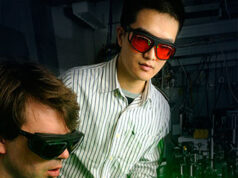Those interested in science and technology have an opportunity to work on some of the most pressing issues of today (e.g. climate change), in cutting edge research (e.g. drug development), and at the forefront of technological innovation (e.g. mobile applications). Below is a review of some of the major career pathways within science and tech:
PATHOLOGY LABORATORY TECHNOLOGISTPathologic technologists work in laboratory settings, performing tests on biological samples, such as cells, fluids and body tissues. A diverse profession, technologists may work in areas ranging from oncology (cancer research) to immunology (immune system research). They work with sophisticated testing equipment, are responsible for tracking and logging data, and collaborating with physicians and other researchers. Approximately half of all technologists work in hospital laboratories, while others work in private physician offices, university research laboratories, and diagnostic laboratory settings. An aging population, along with greater demand for health services through the Affordable Care Act is expected to spur employment growth of 22 percent nationally between 2012 and 2022.Education requirements
Although an associate degree in human biology or clinical laboratory science can open the door to a career, most pathology technologists hold a bachelor’s degree. Certification and licensure is required by most states to work in the field.










